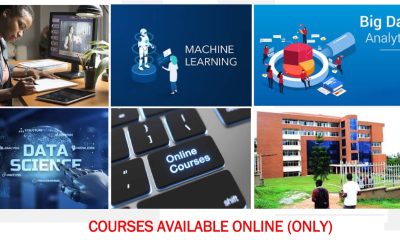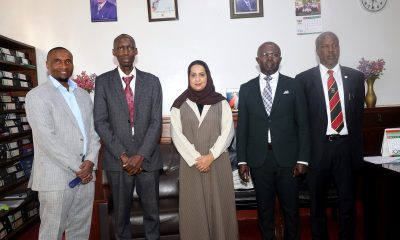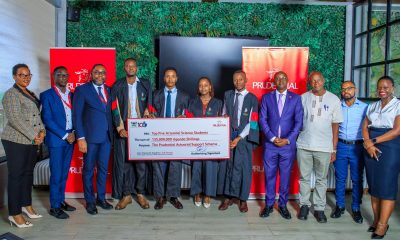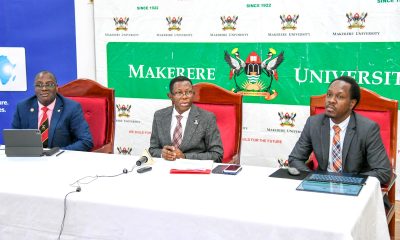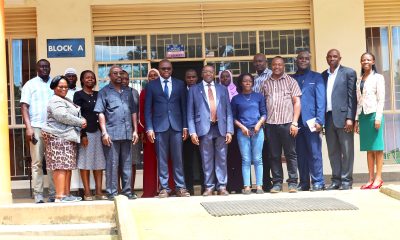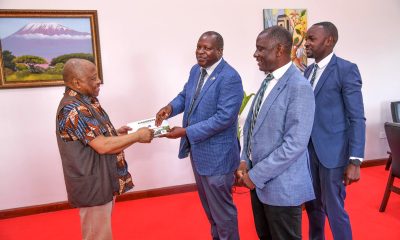Context:
Natural resources in Africa are being depleted at an alarming rate due to several factors, including unsustainable human activities, climate change, and population growth. A primary condition of sustainable development is to ensure that the pressures do not exceed the environmental limits, and that demand for the resources does not exceed levels that can be sustainably provided by nature. Therefore, there is a pressing need for transformative, systems-thinking approaches and tools that can tackle the diverse challenges facing these systems. In Africa, this need is compounded by a lack of data and monitoring, which significantly hinders sustainable decision-making.
Investing in young scientists who are committed to take lead in sustainable management of Africa’s natural resources is very important. Capacity building of young scientists will enhance their knowledge and skill on sustainable natural resources and their involvement for implementation of the sustainable development goals (SDG’s) in Africa. To this effect, SNRM summer schools have been implemented in three sessions in 2019, 2020, and 2022 with support from Volkswagen Foundation; to build a critical mass of skilled and competent young natural resource scientists in Africa through training, capacity building and mentorship. Session 4 (2025) will target competent young scientists (MSc and PhD students) in Africa and Germany to further develop their knowledge and skills in systems thinking, advanced data collection and analysis, and application of emerging digital technologies such as Artificial Intelligence (AI), machine learning (ML), internet of things (IoT), and embracing transdisciplinary approaches. In addition, we include an ideation workshop where students can work on real problems to come up with solutions for sustainable transformations in natural resource use.
Organizers: Leibniz Universität – Hannover (Germany), University of Antananarivo, University of Abomey Calavi (Benin), Makerere University (Uganda), University of Ghana (Ghana), University of Parakou (Benin), The Technical University of Kenya, with financial support from the Volkswagen Foundation (Germany).
Venue and dates: Nairobi, Kenya, 16-28 November 2025
Target: MSc and PhD students, early in the program of less than 35 years of age from any university/research institution in either sub-Saharan Africa or Germany with an interest in natural resources management.
Participants and Scholarships: The course is fully funded and open to 20 MSc and PhD students from Africa, and 5 from Germany. Funding will cover the costs of air ticket, accommodation, meals, visa, and transportation. However, participants will cover the cost of their travel health insurance.
Topics
SNRM Summer School Session 4: Transformative pathways in biodiversity management and conservation.
This summer school is designed to deliver four modules over a two-week period. The modules are designed to enable the students to acquire new ways of designing data collection protocols and analysis for transformative sustainable natural resources management.
Module 4.1: Data collection I
Skills in data collection for a transformative and sustainable management of natural resources (water, wildlife, forest, land, livestock, crops) monitoring and data collection techniques; remote monitoring tools, earth observation system data, e.g. satellite data sources, LIDAR, and UAV aerial images. Collect and analyse In-situ data on biotic and abiotic parameters, map and analyse data using R or Google Earth Engine, field data collection and retrieving data from online databases.
Module 4.2 Data management and processing
Introduction to tools and methods of managing large and diverse data sets of natural resources such as time series, spatial, directional, and multivariate data. Practicals will include data storage, organization and conversion into various formats using databases such as PostgreSQL and statistical programming software such as R and Python; scripts.
Module 4.3 Ecological monitoring, modelling and management
This module aims to teach participants how to anticipate and validate trends that can be observed in various ecosystems. Lectures include ecological monitoring and its design; population monitoring studies; metrics in population monitoring; methods for monitoring and assessing marine ecosystems; human ecology to socio-ecological systems; climate change impact of ecosystems; suitability assessments; overview of the principles underlying wildlife monitoring and prediction systems for climate change adaptation. Practicals will include field data collection (individual and group); ecological data analysis using R or PAST; modelling and experiencing the behaviour of complex systems using Vensim.
Module 4.4 Natural habitat restoration ideation lab
This module is designed to spur students’ innovation and creativity, and to help students comprehensively identify interdependencies across the 17 SDG goals. Participants will be trained on ideation processes for solutions and intervention for transformative natural resource management. They will work collaboratively in small groups on case studies and develop pathways of transformative sustainable natural resource management. Examples of projects include forest (mangrove) ecosystem and habitat restoration, improved technologies for agricultural production, nature-based solutions for improving water quality, and reversing land degradation.
Language: The course will be delivered in English. Participants are expected to be fluent in writing and speaking the English language.
How to apply
Applicants are kindly requested to fill in the application form available from https://snrmafrica.com/ and submit the following documents in English through the system.
- a curriculum vitae (maximum 2 pages)
- a letter of motivation (maximum 1 page)
- a confirmation of university enrolment
- a reference letter from the academic supervisor
- project summary of MSc/ PhD project (1 page including objectives, methodology
and key findings or expected outcomes).
Important dates
Application deadline: 30th June 2025.
Announcement of accepted applicants: 15th August 2025.
Confirmation of attendance by selected participants: 12th Sept 2025.
Summer school held: 16 – 28 Nov 2025.
Further information is available from
The secretariat info@snrmafrica.com
Dr Lydia Olaka lydiaolaka@tukenya.ac.ke
Prof. Dr. Hartmut Stuetzel stuetzel@gem.uni-hannover.de
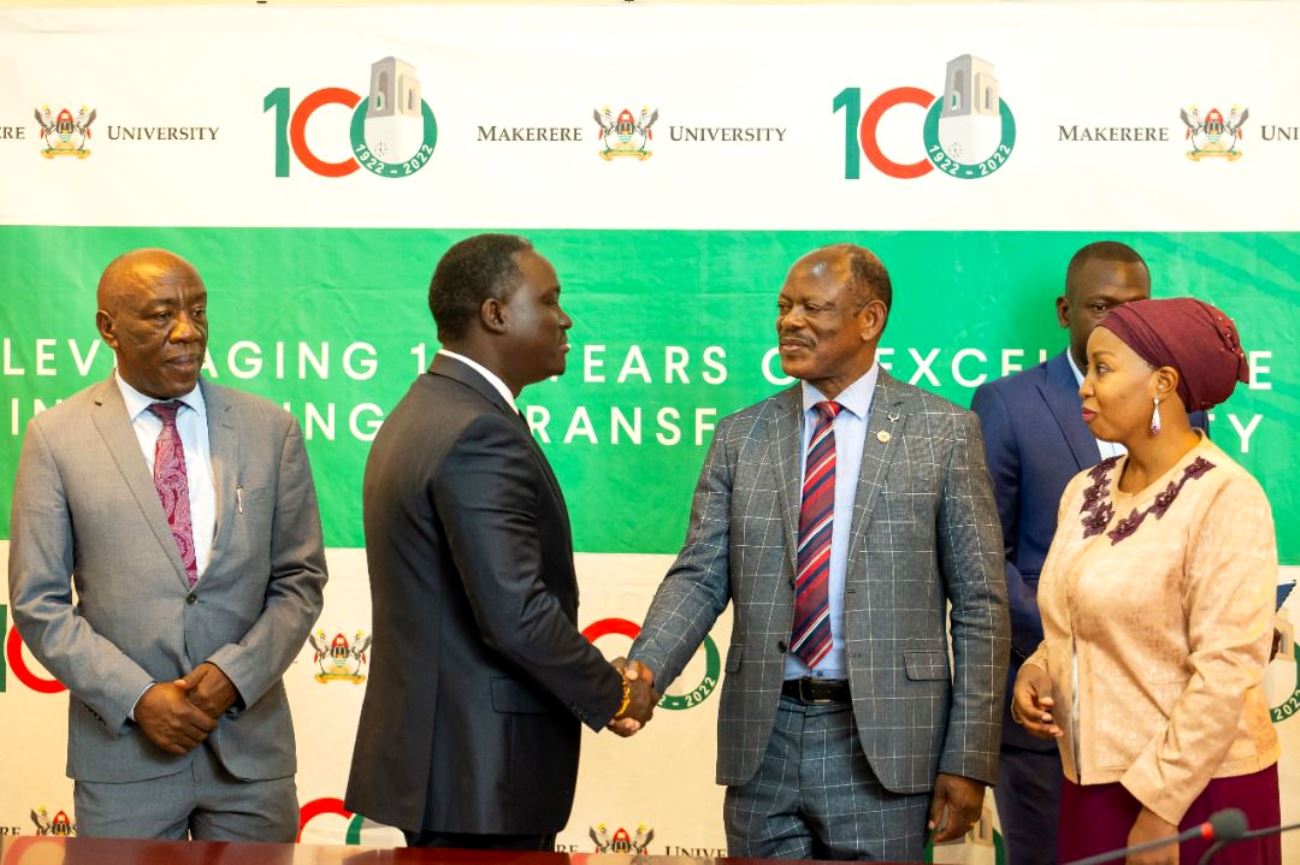

 General3 days ago
General3 days ago
 General6 days ago
General6 days ago
 General1 week ago
General1 week ago
 General1 week ago
General1 week ago
 Natural Sciences2 weeks ago
Natural Sciences2 weeks ago

